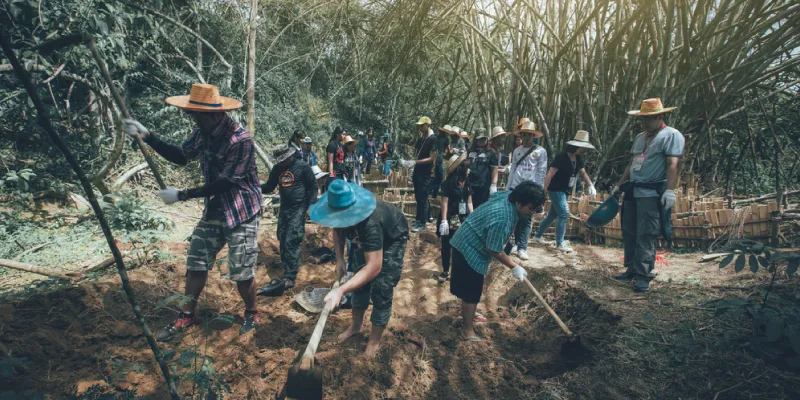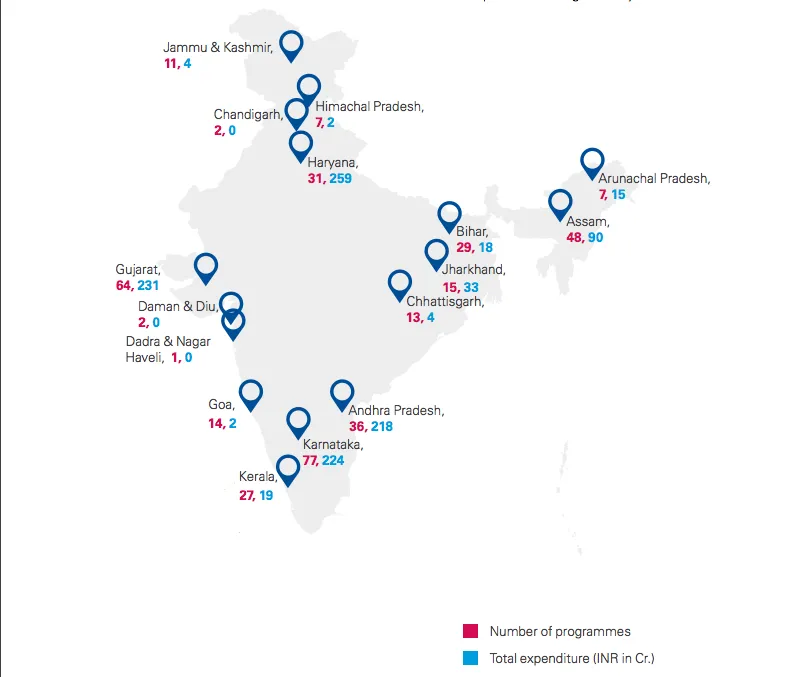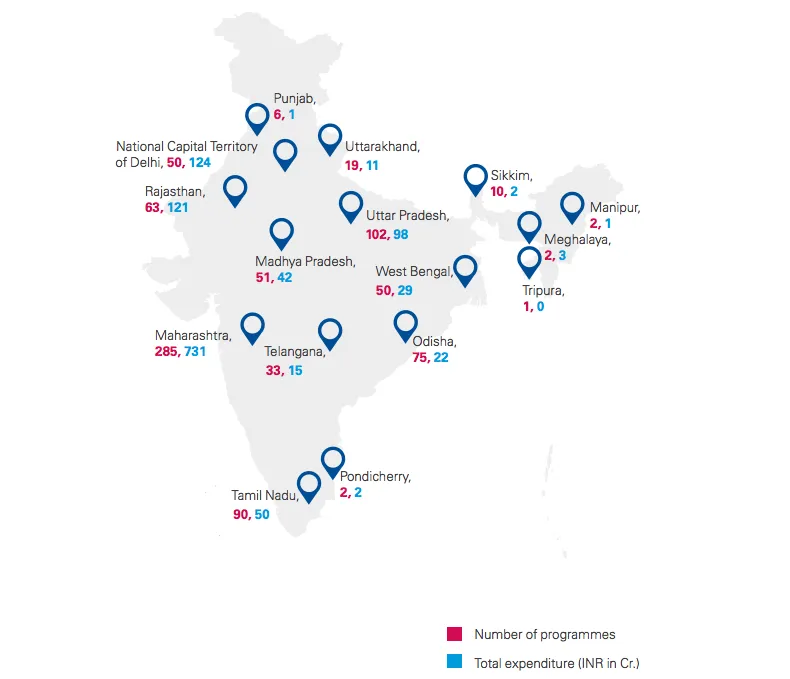9 emerging trends from India Inc’s CSR activities in 2017
Maharashtra implemented the maximum number of CSR projects and received the highest funding too. Backward districts continued to lag, while northeast India gained traction.
Corporate Social Responsibility (CSR) is now an integral part of most Indian businesses. Ever since the Corporate Social Responsibility Act came into effect in April 2014, companies with a net worth of Rs 500 crore or more are mandated to give two percent of their net profits to charity, or CSR programmes as they are called.
India’s top 100 companies have CSR policies in place and make full disclosures of their CSR initiatives in annual reports. KPMG’s yearly ‘India CSR Reporting Survey’ that analysed India Inc’s CSR activities until September 30, 2017, reveals that the instances of companies spending less than two percent of their profits have decreased in the past three years.
More structured CSR budgets have been put in place now, reveals the report, and many organisations are seeking the support of “external implementing agencies".

In 2017, 967 CSR projects out of the overall 1,895 were executed through implementing agencies with an expenditure amounting to Rs 3,014 crore, higher than even the direct implementation quota.
Here are some key CSR trends that emerged in 2017:
Top five states
Maharashtra, Uttar Pradesh, Tamil Nadu, Karnataka and Odisha are the top five states when it comes to the number of CSR projects being implemented. These account for 32 percent (or 629 projects) of all CSR projects and initiatives underway in India. Maharashtra, meanwhile, has topped the list for three years in succession.
Northeast gaining traction
India’s seven north-eastern states received some CSR traction during the year with over 70 CSR projects being executed in those regions. That is a 51-percent rise in the number of projects since 2014-15.

Most-funded states
Maharashtra, Haryana and Gujarat lead in terms of CSR funding received. The average project cost in Haryana is the highest at Rs 8.4 crore, followed by Andhra Pradesh (Rs 6 crore) and Gujarat (Rs 3.6 crore).

Sectors in focus
In 2017, education and healthcare accounted for over 56 percent (Rs 4,045 crore) of the total CSR spends (Rs 7,215.9 crore) in India. Both these sectors have traditionally been in focus. Expenditure towards education has grown a massive 92 percent over the last three years, from Rs 1,249 crore to Rs 2,404 crore. A part of it could be due to the government’s push for the girl child’s education through its ‘Beti Padhao Beti Bachao’ drive.
CSR and diversity
Companies that had higher women representation in their boards had more programmes dedicated to reducing gender inequality. Out of 116 CSR activities undertaken to reduce inequality, 67 percent of them were implemented by companies with women in their CSR committees.
Telecom spends more
The telecom sector, despite being burdened with high debts, has increased its CSR spends by nearly 400 percent since 2014-15. Pharma followed, with a 234 percent rise in CSR expenditure.
Backward districts lag
According to the Ministry of Rural Development, India has a total of 640 districts, of which 43 percent (272) are regarded as “backward districts”. Despite this, only 15 percent of CSR budgets were allocated to activities in these districts in 2017. In Bihar, which has the highest number of backward districts (38), only 14 percent of the CSR expenditure was concentrated in these areas.
PSUs trail non-PSUs
Public sector companies executed 22 percent (421) of all CSR projects in 2017 accounting for 31 percent of the total CSR expenditure. Non-PSUs, on the other hand, implemented 78 percent (1,474) of the projects. The average project cost, however, was higher for PSUs at Rs 5.1 crore than non-PSUs at Rs 3.2 crore.
Non-Indian companies
Only five percent of all CSR projects in 2017 was executed by companies not of Indian origin. These accounted for a mere three percent of overall CSR expenditure. The average project cost too was lower at Rs 2.1 crore compared to Indian companies’ Rs 3.7 crore.







